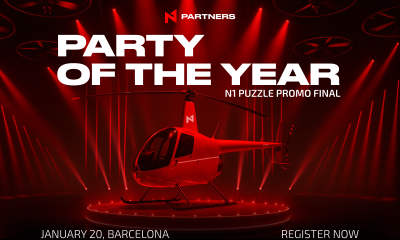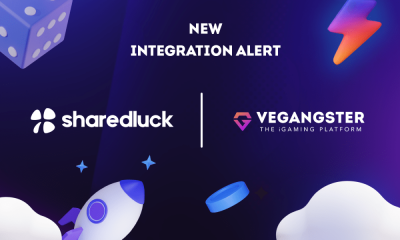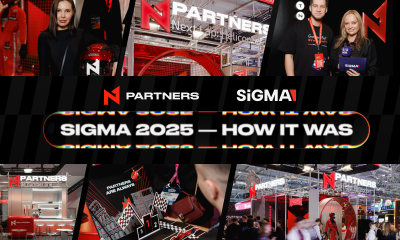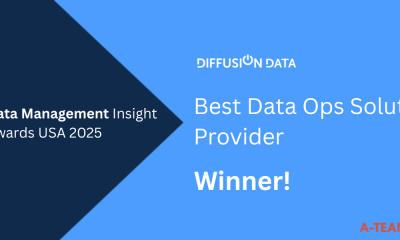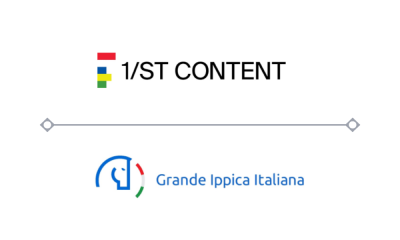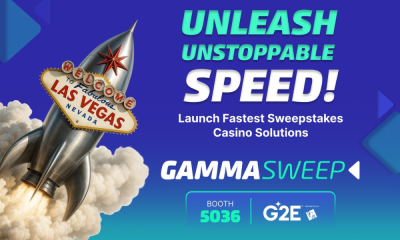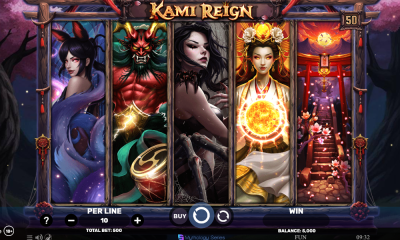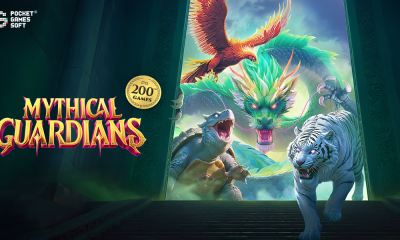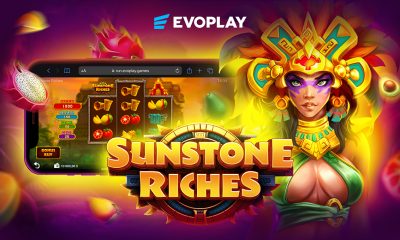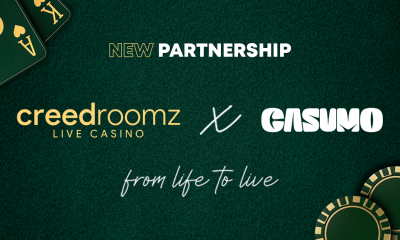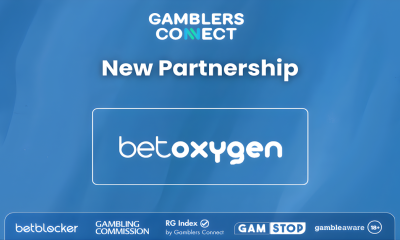Intelitics
My big predictions for 2025
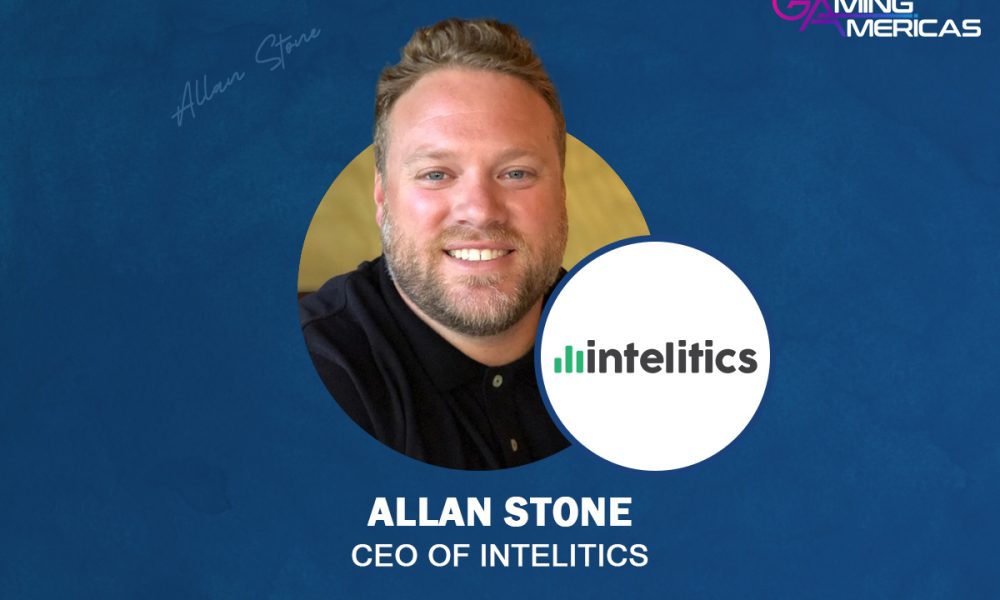
Intelitics CEO Allan Stone talks sweepstakes, influencers and personalised player experiences
This is a fast-moving sector and over the next 12 months operators and suppliers will once again have to strap in for a roller-coaster ride. Ups and downs are guaranteed as they navigate the shifting sands of the global online gambling industry.
This makes predicting what the coming year has in store a tough task – player preferences can quickly change, regulations can suddenly update and innovations catch companies off guard. But I like a challenge, so here are big predictions for 2025 below.
The sweepstakes hype will become a reality
If 2024 was the hype year for sweepstakes, 2025 is the year they will become a reality despite the sector being under immense pressure. That said, most operators are staying the course with stakeholders at the state level duking it out over regulations and class action lawsuits.
This will bring changes in certain areas, but I think there will be a move away from heavy-handed measures and instead, the public markets will be left to figure things out – this will give good companies the room to grow and adapt.
We are already seeing established companies address problem areas by embracing best practices around areas such as player verification and responsible gambling which in turn is helping to legitimise their business and the wider sweepstakes vertical.
Operators will become more strategic with their marketing efforts (and spend)
Sportsbook operators finally read the room in 2024 and understood that consumers were getting tired of seeing the same national TV ads over and over, especially in states where sports betting isn’t legal.
This saw many brands pull back on national campaigns amid diminishing returns on blanketing the airwaves with generic ads to become more strategic. This is a trend I expect to see continue in 2025.
This will mean more localised advertising with hyper-vigilance in spending – every ad dollar will be carefully allocated to ensure it delivers results. Expect refined top-of-funnel tactics with companies moving away from noisy, generic campaigns in favour of targeted consumer-first strategies.
Don’t underestimate the power of Meta
Meta is the second-largest controller of digital ad inventory in the world and is arguably the best platform out there for targeting and segmenting specific audiences. But it’s important to play by their rules – if Meta bans you, you’re essentially removing yourself from the equation.
It’s next to impossible to come back from and we’ve seen this happen time and again with clients coming to use after a ban asking for a fix. The reality is, there isn’t one.
This is why it’s so important to take your time with Meta – taking a strategic approach and ensuring compliance with its rules means you don’t get burned when playing with what is one of the hottest marketing platforms in the world.
Personalised experiences will become mission-critical to operator success
The operators succeeding in sports betting right now understand that players want experiences tailored to them. This means ensuring they can quickly access the bets they want to place, whether that be for specific teams or players, and even the markets and bet types they prefer.
Personalisation is about adapting to how players bet, not the other way around. This helps operators and brands to build long-term engagement by tailoring the experience, which in turn keeps players coming back.
If operators can create something that feels personal and intuitive they don’t need to keep pushing heavy promotions or generic options.
Fanatics have proven how powerful this approach can be – they weren’t the first to market, but they filled gaps their competition left wide open and have achieved great success by doing so. Ultimately, operators need to remember to build for players and not for themselves.
Influencers will enter the marketing mix in a meaningful way
Influencers have proved to be an effective marketing tool but an influencer strategy without a strong way to measure attribution is useless, and two things you need to be extremely clear about with influencers is “can you actually send me players” and “how valuable are these players to me?”.
These are easy questions to ask but much harder to answer.
This is why you need to test, track and iterate. I’d suggest starting with a promotion and closely monitoring data. You should also ask yourself things like:
How many people saw the promotion?
How many clicked?
Of those clicks, how many created accounts?
Are those accounts funded?
Are these new users actively playing over time?
But remember, influencers aren’t just an acquisition tool. They are a way to amplify your message to an audience you might already engage with but need help reaching consistently. This is hard to track, but with the right technology and attribution systems, it can be done.
The post My big predictions for 2025 appeared first on Gaming and Gambling Industry in the Americas.
Allan Stone CEO at Intelitics
Movers and Shakers: Why flexibility and accountability are key to customer acquisition
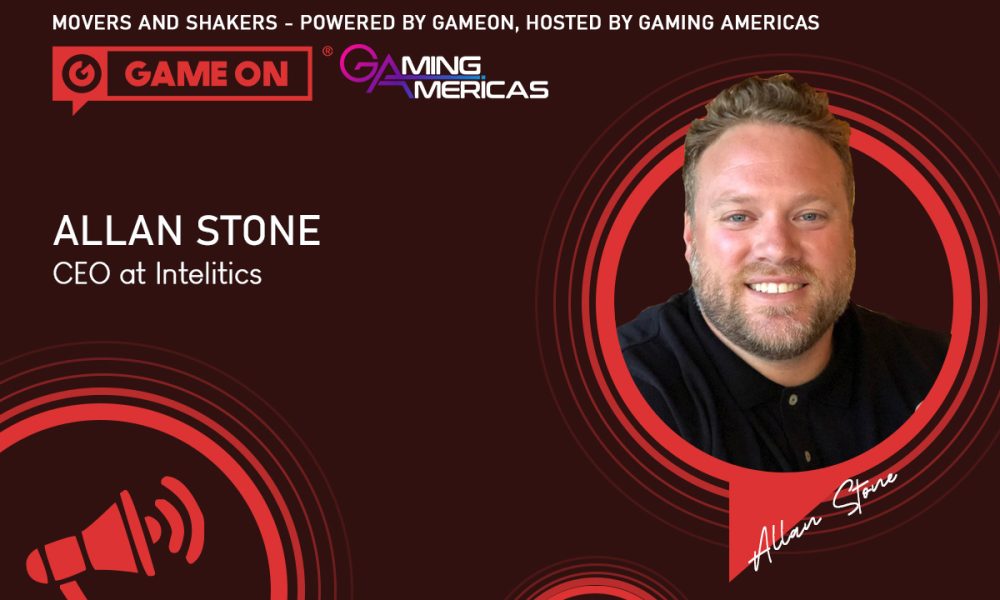
“Movers and Shakers” is a dynamic monthly column dedicated to exploring the latest trends, developments, and influential voices in the iGaming industry. Powered by GameOn and supported by HIPTHER, this op-ed series delves into the key players, emerging technologies, and regulatory changes shaping the future of online gaming. Each month, industry experts offer their insights and perspectives, providing readers with in-depth analysis and thought-provoking commentary on what’s driving the iGaming world forward. Whether you’re a seasoned professional or new to the scene, “Movers and Shakers” is your go-to source for staying ahead in the rapidly evolving iGaming landscape.
Allan Stone, CEO at Intelitics, looks at recent changes to paid search ads and how a bigger budget is not the magic bullet for successful affiliate programs
Just as online sportsbook and casino operators embraced paid media and paid search as powerful and effective customer acquisition channels, the game has changed again, with new challenges to overcome.
What’s happened? At Google Marketing Live 2025, the search giant announced it will be rolling out ads inside AI-generated answers. This is going to have a seismic impact on paid search, but get it right and marketers can gain a significant advantage over their rivals.
Here’s what the change means for real money gambling brands.
1 – Placement isn’t placement anymore
Your ads won’t show up in traditional search blocks and instead will be embedded inside the AI answer itself. This changes how you write copy for sports-betting-related queries. For example, “Best odds” messaging hits differently when it’s inside an AI response.
2 – Fewer clicks but better players
AI answers will reduce total clicks, but the users who click through will be high-intent bettors. Expect click-through rates to drop, but player conversion rates to rise. In short, it will be a shift from quantity to quality.
3 – Context beats keywords
Forget exact-match keyword strategies, as now, you need to match the intent behind what the user is asking AI across a wide range of sport betting-related queries, from betting lines to game props and even deposit methods.
4 – SEO traffic is about to crater
The AI block dominates the entire screen, especially on mobile, and is likely to be the player’s first port of call. If you’ve been relying on organic search alone for player acquisition, expect fast traffic drops.
5 – Optimise for AI, not just search behaviour
Operators and their marketers will need to rethink how their sportsbook features, player reviews and betting content show up when AI crawls and indexes it. Getting into the AI result is now just as important as ranking in the top positions for competitive keywords.
For me, this is the biggest shift in paid acquisition since the iOS privacy changes hit Meta, and operators and their marketers need to respond immediately.
Those using Performance Max and Google’s AI Max program can get ads in AI Mode, and so long as they adapt their messaging and targeting to this new reality, they will capture higher intent players while their competitors scramble.
Another area where some sportsbooks continue to scramble is performance marketing, where underperforming partner programs are costing operators millions. But not for the reason they think…
It’s not about having partners; it’s about how you manage them. In our experience, the gap between top-performing programs and the rest isn’t budget, it’s the freedom given to affiliate partners.
We’ve evolved from the days when operators controlled every pixel of partner content, and this is welcome progress. But there’s still a disconnect between what we say and what we do – allow me to elaborate.
Operators talk about empowering partners but then micromanage their messaging. They say they want authentic voices but reject content that doesn’t match their corporate tone. They seek performance but restrict the very tactics that drive it.
The reality is that the best partners already understand their audience much better than the operator ever will. They’ve built trust and they know what resonates, but they need to be able to speak authentically.
This is why smart operators focus on frameworks rather than restrictions. And this should include clear brand guidelines that protect compliance, as well as consistent values that maintain brand integrity. It’s also important to provide flexible creative assets that partners can adapt.
But creative freedom is only half the equation.
Without proper measurement, the partnership program is flying blind, and, in most cases, operators can’t answer even the most basic questions like “Which partners drive actual player value beyond initial sign up?” and “What’s the true LTV of players from different channels?”.
When budgets get tight, the first things to be cut are partnerships that the operator can’t prove are working. The market leaders have figured this out and have built both flexibility and accountability into their programs.
And at Intelitics, we are proud to be working with a growing number of operators who are using our marketing-tech suite and services to streamline tracking, automate reporting and push into new customer acquisition channels, including paid media and paid search.
In short, we help them bring flexibility and accountability to their acquisition efforts.
The post Movers and Shakers: Why flexibility and accountability are key to customer acquisition appeared first on Gaming and Gambling Industry in the Americas.
Allan Stone CEO of Intelitics
Allan Stone: Player retention – keeping players coming back in the age of sky-high acquisition costs
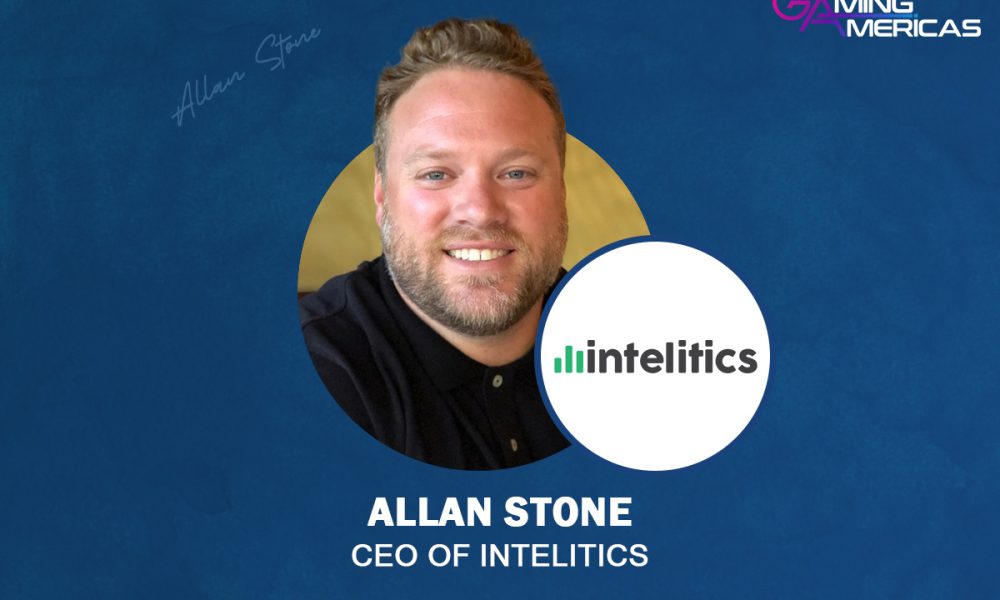
In your view, why do you think player acquisition costs are reaching record-high levels?
Allan Stone: We’re starting to see the impact of many of the privacy standards implemented. There is the Cookie deprecation that’s happened across both Google and iOS, as well as a lot of the ad identifiers being blocked by default, as opposed to as a setting that users can turn on. Operators haven’t been able to truly understand what the impact of this has been. They’re having to spend much more to achieve the same level of performance, simply because they don’t have a good understanding of the systems in place to hone in on where they are spending money to acquire players. As a result, operators are having to spend more money acquiring players that maybe aren’t the best quality and will likely churn.
From a regulatory perspective, especially in the US, there has been a bit of a slowdown in markets opening. We had an initial gold rush here in the US, but now, fewer states are coming online. We’re seeing a pullback on ad spend; even though it costs much more to acquire new players, operators aren’t spending as much as they used to. I think that’s an effect of over saturation in the market. Players have seen all these different products and different brands that are available to them. Essentially, the core products have become very commodotised. Every operator seems to offer pretty much the same slots as everyone else does.
What’s interesting is that if you’re to walk into a bunch of different casinos in Las Vegas, once you walk past the front doors, they all look and feel the same from a gaming perspective. Where they differ is through the experience that you get while in the casino; the design, the hospitality, etc. Those players that tend to play offline are starting to look towards those secondary offerings outside the core betting portfolio, they’re seeking more of an experience.
I think that we haven’t seen that in the digital space yet. There is very little differentiation in user experience on one betting app compared to the others. Operators need to take the time and energy to really personalise and customise their user experience to individual players. When that starts to happen, this is when you start to see an increase in acquisition costs. But then you will also see a consolidation in those costs – operators will start to become more efficient, cost savings will come into play, and that is when these brands can really differentiate themselves from one another.
What’s the secret to keeping players coming back in the long term?
Allan Stone: In a word, personalisation. It’s plain and simple. The more that brands can understand player behaviours and continue to create personalised experiences, the more they will keep players coming back in the long term.
I’ve heard a few different product people talk about how they can try personalise the experience further, and one idea was to emulate the experience that you get from apps such as Tinder where you swipe left or right to bet on different markets. What they realised was that the younger generation of players – who maybe weren’t as valuable – enjoyed that product feature, but their core betting customers weren’t as engaged. Operators are waking up to that now. If you want players to remain around, you’ve got to give them a reason to stay other than simply rolling out the same products as everyone else.
For a lot of the North American brands, they’ve done a great job of tying their iGaming and sports betting experience into their land-based properties. As time goes on, and the market continues to mature, you’ll see much more of that starting to happen. The land-based and digital experiences can complement each other really well, when done right; operators need to make sure they have that streamlined experience across all touchpoints. Brands should be going beyond the standard, core betting experience and instead delivering something much more holistic, and much more personalised to each customer.
Historically, we’ve beta tested location-based suggestions during NFL games, whereby if someone opened up a betting app while in a stadium, then that would be a good indicator of what markets they would be looking to bet on. They’re more than likely wanting to bet on the game that is taking place in front of them. Operators could use this opportunity to offer micro betting markets, or player props to that player. We know that the technology is there to do this.
How do these approaches balance the need for immediate engagement with long-term loyalty?
Allan Stone: A lot of the data and technologies that exist to support operators from an AdTech and MarTech perspective, at least from an acquisition side, has not been great. But we are starting to see that change. Operators can no longer leverage 20-year-old technology to solve a modern-day problem. They need to get granular with the data that they have at their disposal and understand where they can improve their media buying efforts. They need to find out how many players they acquired, what their lifetime value is, whether there are any similarities and trends between those players. From there, operators can then optimise their campaigns to focus on just acquiring those players.
There is much more that operators can be doing to leverage their data at scale and create massive efficiencies in their player acquisition – that, ultimately, would bring down costs. If you can create those efficiencies, you can theoretically reduce your costs by 20-30% which is a huge saving.
Affiliate Industry
Novig Selects Intelitics for Acquisition Push in Colorado and Beyond

New online sportsbook brand to leverage the provider’s cutting-edge technology to power user-acquisition in the fast-growing sports betting state
Novig, the online sports betting operator soon to make its debut in Colorado, has selected Intelitics to power its affiliate program and paid channels. Under the deal, Novig will gain access to Intelitics’ award-winning platform and suite of products and features.
The provider’s data-driven platform and premium toolset will allow Novig to run and manage all affiliate and paid media activity, unlocking the huge potential that both channels offer when it comes to cost-effective customer acquisition at scale.
The Intelitics’ platform is cutting-edge and includes real-time campaign monitoring and player tracking, plus automated reporting and personalised dashboards. All of this is delivered in real-time and via a single platform.
Novig will initially launch in Colorado as an online sportsbook operator but has plans to roll out a high-frequency betting exchange that allows users to bet against best-in-market odds or set their own odds, once the activity has been approved by the state’s gambling regulator.
The operator’s platform leverages state-of-the-art technology from Wall Street and Silicon Valley and combines it with proprietary research and trading to deliver the most efficient, seamless and fair betting platform in the industry.
“Novig is set to disrupt the Colorado online sports betting market and we are thrilled to be supporting its acquisition efforts through affiliates and paid media,” the Chief Executive Officer for Intelitics, Allan Stone, said. “These are powerful channels that are highly effective, both in terms of scale and cost.
“Our platform and suite of tools have been designed to allow operators such as Novig to maximise the potential of affiliates and paid media through real-time data that provides the insights needed to dial up successful campaigns and dial down those that are not working. This is another great partnership for Intelitics and one where we see huge potential for Novig and its ambitions for the market.”
“We are a technology company at heart and in Intelitics we have a partner that understands the power of technology and data when it comes to effective affiliate marketing and paid media,” the Head of Growth Marketing for Novig, Catherine Dougherty, said. “This is a powerful, highly capable platform and toolset that we will be able to use to drive new customer acquisition at scale and for a fraction of the cost of other marketing channels. This will give us a huge boost in Colorado and the other states where we will make a play.”
-

 Hold and4 days ago
Hold and4 days agoPragmatic Play Rings in 2026 with Joker’s Jewels Hold & Spin™
-

 iGaming News 20264 days ago
iGaming News 20264 days agoSpinomenal Rings in 2026 with Japanese-Inspired “Kami Reign Ultra Mode”
-

 Five Elements Slot4 days ago
Five Elements Slot4 days agoPG Soft Concludes 2025 with High-Volatility Launch: Mythical Guardians
-

 Latest News4 days ago
Latest News4 days agoFrom ‘Mummyverse’ to Crash Games: Belatra Reviews a Landmark 2025
-

 Aztec Slot3 days ago
Aztec Slot3 days agoEvoplay Unveils Sunstone Riches: An Aztec Adventure Powered by the Sun
-

 Bespoke Gaming Studio4 days ago
Bespoke Gaming Studio4 days agoCreedRoomz and Casumo Forge Strategic Partnership to Elevate Live Casino Experience
-

 Akshat Rathee3 days ago
Akshat Rathee3 days agoIndian Esports 2026: Strategic Growth and the Asian Games Milestone
-

 B2B gaming software4 days ago
B2B gaming software4 days agoGamblers Connect and BetOxygen Announce Strategic B2B Partnership



